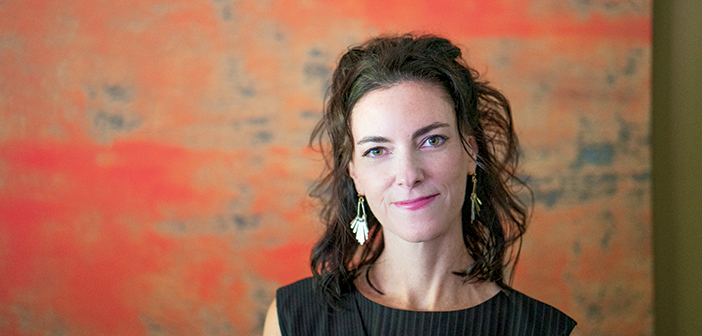Gender bias in health care and research has serious side effects for women.
Alyson J. McGregor RES’07, MD, MA, discovered a passion for women’s issues as a premed student. But when she chose women’s health as her research focus at Brown, confused emergency department colleagues sent her ob/gyn cases.
“I see women who have heart attacks. I see women who have strokes. I see women in car accidents. I see women who have medication problems,” says McGregor, an associate professor of emergency medicine. “Why is there this assumption that to care for women means you are caring just for their reproductive health?”
At the time, the study of how biological sex impacts health did not exist. But as research findings drew more distinctions between men and women—from heart attack and stroke symptoms to medication effectiveness to how we experience pain—McGregor’s work moved into the mainstream.
McGregor is an emergency physician at Rhode Island Hospital and the cofounder and director of the Division of Sex and Gender in Emergency Medicine at Brown, which sponsors research and trains residents and fellows. Earlier this year she published Sex Matters: How Male-Centric Medicine Endangers Women’s Health—and What We Can Do About It (Hachette), to educate and empower her readers.
A native of Coventry, RI, McGregor lives in Warwick with her husband, Eric Goedecke, DO, who’s also an emergency physician, and their Portuguese water dogs, Feta and Basil.
M@B: You’ve said you’re grateful for your department for letting you investigate sex differences, that other places might not have been so open-minded. What do you hear from colleagues at other institutions?
AJM: I am fortunately not a lone warrior anymore. Throughout the world and our country, colleagues who have similar passions are trying to educate within their own field. But yesterday my husband had a 60-year-old female patient who complained of fatigue and abdominal pain, and when he got the EKG he realized she’s having a heart attack. But then he called the interventional cardiologist, who said, “She’s female, she’s only 60, she doesn’t have diabetes or anything—I don’t know.” And she went to the cath lab and she had major vessel disease and needed a large stent. It shows that we have been taught a male pattern of recognition, and it’s not servicing women adequately.
M@B: And heart attack symptoms are just the tip of the iceberg.
AJM: It is so pervasive. We have looked at female bodies as too complicated because of the cyclic nature of hormones. But we need to look at the hormonal differences between men and women, and how that affects our development of diseases and our exacerbation of pain and our relationship to medications.
M@B: COVID-19 seems to affect men worse than women. It’s a perfect example of how we experience disease differently.
AJM: Exactly. Considering biological sex when you’re doing research is a quality measure. A lot of people have felt this is a women’s health issue. Now that COVID is showing us that there are important differences that are negatively impacting men, it underscores the point that this is about good science.
M@B: Do studies of potential COVID treatments have a balance in the sex of trial participants?
AJM: Even if a study enrolled 50 percent males and 50 percent females, you cannot combine the results. There are lots of examples where some drug has a positive effect in men and a negative effect in women. But if you pull everything together, you’ll be blinded to that result. So it’s not just about enrolling women—it’s about analyzing the data to look for sex differences. They’re not always going to be there, but if they are, that’s sometimes an important key.
M@B: Women’s health concerns have been downplayed for centuries. When you call to reinvent medicine from the ground up, it’s thousands of years that need to be undone.
AJM: It seems daunting, but we take an oath to have to evolve. If you look at medicine from hundreds of years ago, you can’t believe that we would do such things. I’m hoping to make this be the next thing that we evolve from.




